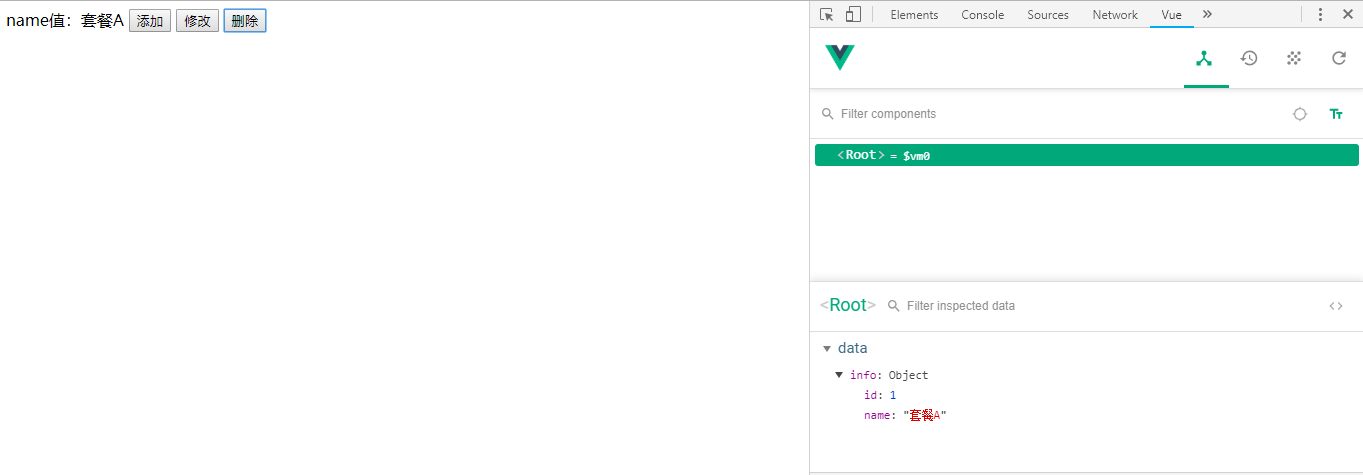一、$set
在开始讲解$set之前先看下面的一段代码,实现的功能:当点击“添加”按钮时,动态的给data里面的对象添加属性和值,代码示例如下:
<!DOCTYPE html> <html lang="en"> <head> <meta charset="UTF-8"> <meta name="viewport" content="width=device-width, initial-scale=1.0"> <meta http-equiv="X-UA-Compatible" content="ie=edge"> <title>添加属性</title> <!--引入vue.js--> <script src="node_modules/vue/dist/vue.js" ></script> <script> window.onload=function(){ new Vue({ el:'#app',// 2.0不允许挂载到html,body元素上 data:{ info:{id:1,price:15,name:"套餐A"} }, methods:{ add:function(){ // 给info对象添加msg属性并赋值 this.info.msg="hello"; } } }); } </script> </head> <body> <div id="app"> {{info.msg}} <button @click="add">添加</button> </div> </body> </html>
先看看点击按钮之前的效果:
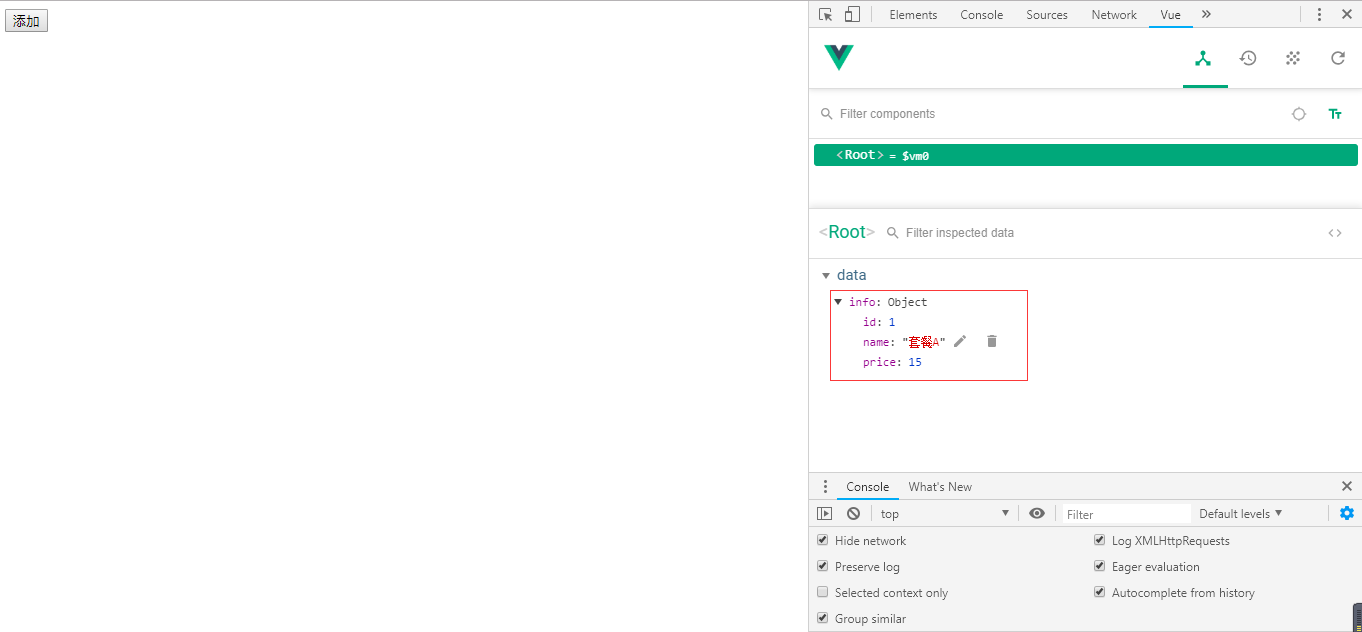
从截图中可以看出这时info对象只有三个属性,点击“添加”按钮刷新,然后在看看info对象的属性,截图如下:
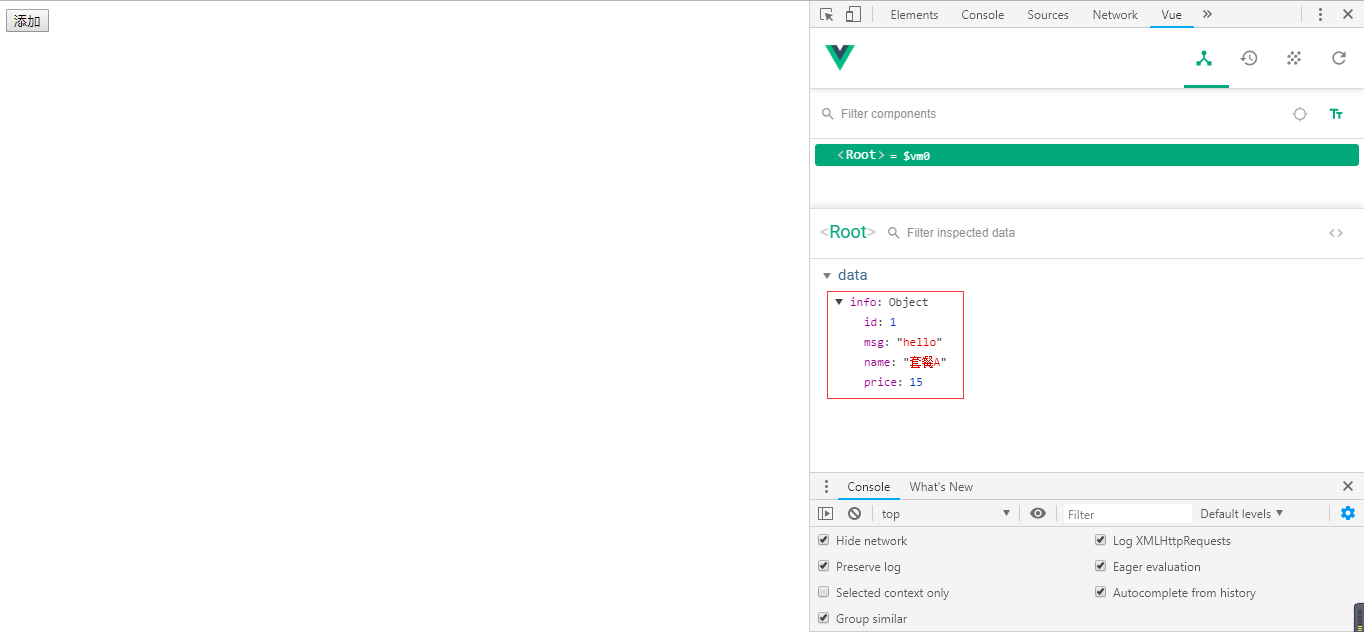
可以看出这时info对象增加了msg属性,但是界面上面没有显示出来msg属性的值。即:
如果在实例创建之后添加新的属性到实例上,不会触发视图更新。
这时就需要使用$set了。代码示例如下:
<!DOCTYPE html> <html lang="en"> <head> <meta charset="UTF-8"> <meta name="viewport" content="width=device-width, initial-scale=1.0"> <meta http-equiv="X-UA-Compatible" content="ie=edge"> <title>添加属性</title> <!--引入vue.js--> <script src="node_modules/vue/dist/vue.js" ></script> <script> window.onload=function(){ new Vue({ el:'#app',// 2.0不允许挂载到html,body元素上 data:{ info:{id:1,price:15,name:"套餐A"} }, methods:{ add:function(){ // 给info对象添加msg属性并赋值 //this.info.msg="hello"; this.$set(this.info,"msg","hello"); } } }); } </script> </head> <body> <div id="app"> {{info.msg}} <button @click="add">添加</button> </div> </body> </html>
效果:
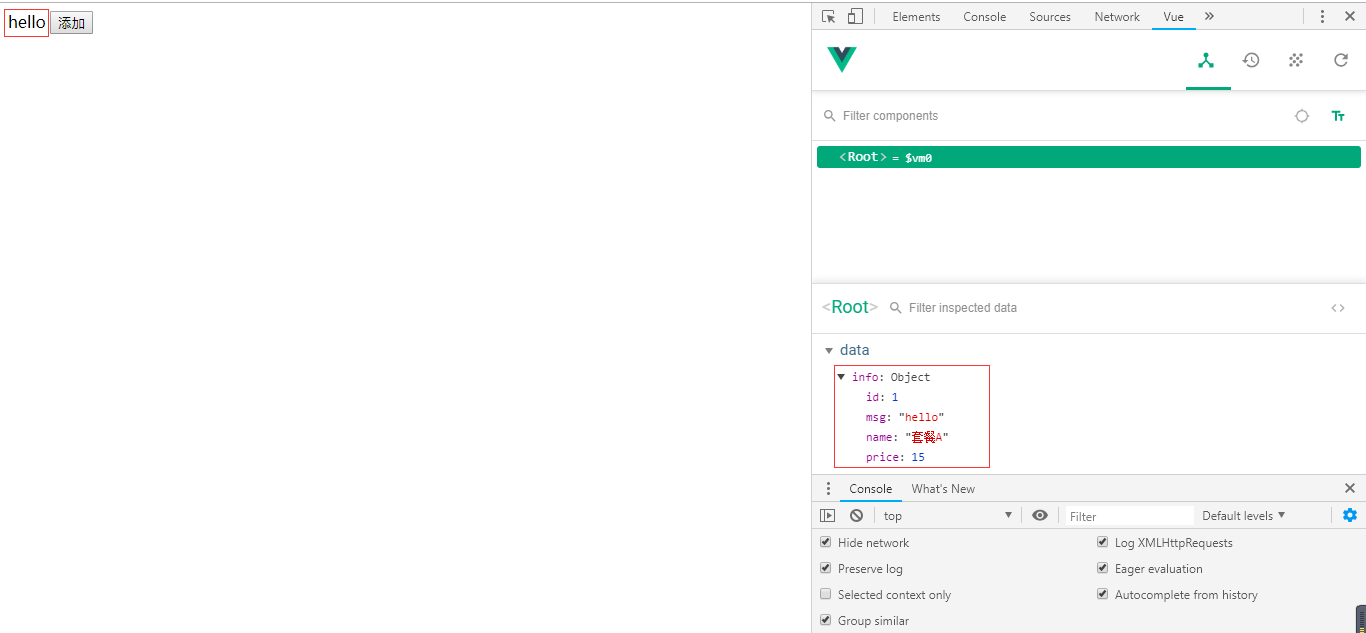
可以看出:使用了$set之后视图会被更新。
注意:如果是修改对象里面已经存在的属性,则直接修改即可
代码示例如下:
<!DOCTYPE html> <html lang="en"> <head> <meta charset="UTF-8"> <meta name="viewport" content="width=device-width, initial-scale=1.0"> <meta http-equiv="X-UA-Compatible" content="ie=edge"> <title>添加属性</title> <!--引入vue.js--> <script src="node_modules/vue/dist/vue.js" ></script> <script> window.onload=function(){ new Vue({ el:'#app',// 2.0不允许挂载到html,body元素上 data:{ info:{id:1,price:15,name:"套餐A"} }, methods:{ add:function(){ // 给info对象添加msg属性并赋值 //this.info.msg="hello"; this.$set(this.info,"msg","hello"); }, modify:function(){ this.info.name="套餐B"; } } }); } </script> </head> <body> <div id="app"> {{info.msg}} name值:{{info.name}} <button @click="add">添加</button> <button @click="modify">修改</button> </div> </body> </html>
效果:
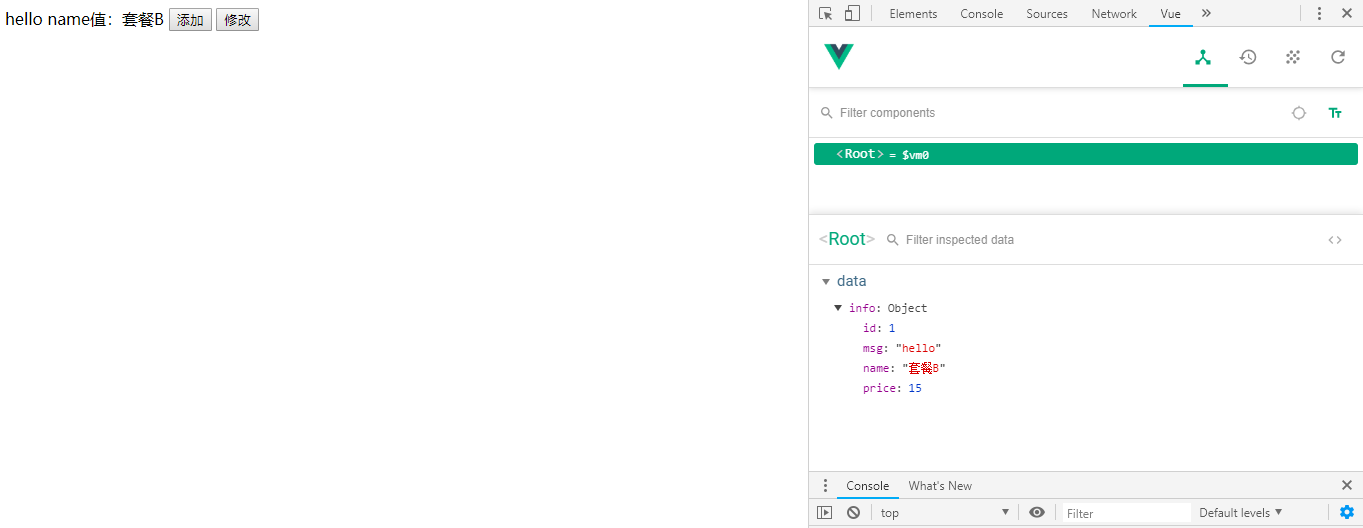
二、$delete删除对象属性
可以使用$delete删除对象里面的属性,代码示例如下:
<!DOCTYPE html> <html lang="en"> <head> <meta charset="UTF-8"> <meta name="viewport" content="width=device-width, initial-scale=1.0"> <meta http-equiv="X-UA-Compatible" content="ie=edge"> <title>添加属性</title> <!--引入vue.js--> <script src="node_modules/vue/dist/vue.js" ></script> <script> window.onload=function(){ new Vue({ el:'#app',// 2.0不允许挂载到html,body元素上 data:{ info:{id:1,price:15,name:"套餐A"} }, methods:{ add:function(){ // 给info对象添加msg属性并赋值 //this.info.msg="hello"; this.$set(this.info,"msg","hello"); }, modify:function(){ this.info.name="套餐B"; }, del:function(){ // 删除info对象里面的price属性 this.$delete(this.info,"price"); } } }); } </script> </head> <body> <div id="app"> {{info.msg}} name值:{{info.name}} <button @click="add">添加</button> <button @click="modify">修改</button> <button @click="del">删除</button> </div> </body> </html>
效果:
